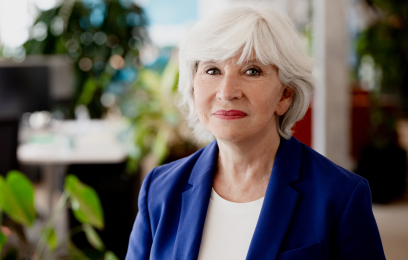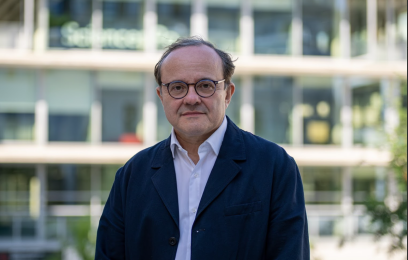A joint statement on social sciences in a time of crisis, from the Presidents of the partner institutions of CIVICA - The European University of Social Sciences
The coronavirus crisis has changed our way of life and shaken the social, political and economic foundations of our societies.
As leaders of the prominent European higher education institutions making up CIVICA - The European University of Social Sciences, we know that the social sciences will play a vital role in understanding current and future challenges, and in providing the ideas and expertise that will help the world overcome them. We hereby commit to clear actions that ensure we fulfil that role and set out how policymakers across Europe can help support this crucial endeavour.
The global nature of the crisis means international cooperation in higher education and research is more important than ever. This is certainly the case in Europe, which faces profound challenges to our joint social, political, economic, health care and environmental systems. The urgent need to jointly face these challenges requires well-organised and effective cooperation and mobilisation of both resources and knowledge across the continent. This must incorporate new and deeper methods of collaboration between the medical, natural and social sciences.
The world of higher education itself is changing quickly and universities are actively amending their mission and responsibilities in light of this new reality. Core elements of the university experience, such as welcoming international students to our campuses, sending students on exchanges, hosting visiting researchers, and meeting colleagues at conferences, are no longer possible and will remain difficult indefinitely. We need to adapt our ways of working, while always being clear that the best environment for learning and research is one in which ideas can travel freely and students, teachers and researchers from across the world can interact directly.
As a European University, it is our objective to provide and vigorously promote clear, social sciences-based responses to the crisis. We are calling on policymakers across the continent to support us in this endeavour and to work with higher education institutions to ensure that education and research continue to flow across borders inside the European Union and remain open for multilateral interactions with the rest of the world.
CIVICA partners agree on the following immediate action as part of their cooperation:
· We will accelerate the development of a digital learning infrastructure. This will better connect students, faculty and researchers, primarily but not exclusively across Europe, throughout the pandemic and beyond. It will contribute to a more sustainable and interactive system of higher education and research. The CIVICA trans-European campus will be our main base for these developments and it is already in action.
· We will foster student exchangesbetween our institutions, including virtual exchanges, even while physical travel cannot resume, focusing on hybrid and blended-learning experiences as part of our joint European campus. We will promote similar opportunities with other European and international partners across the world.
· We will reach out to the rest of the world, recruiting talented international students, faculty and researchers to strengthen Europe’s position as a global hub of innovative social science research.
· We will share with policymakers and the public at large the outcomes of our research activitiesin the social sciences, to support effective responses to the crisis and to provide significant societal benefit.
To be successful in these endeavours, we need support from our policymakers. We call upon all European and national political leaders to:
· Recognise and support European study and exchange programmesthat may have to temporarily take place fully or mainly online. Blocking student mobility—a feature that has contributed to building a sense of European belonging—would be devastating. European physical exchange and mobility must be preserved into the future.
· Make the reopening of our borders one of their highest prioritiesas soon as the necessary health and safety conditions can be ensured. Our common European research base must be preserved, especially as a transnational response is needed to meet a transnational crisis.
· Support us in remaining open and accessible to the rest of the world, by offering flexible visa and immigration regimes to international students and researchers, adapted to the current situation, and by ensuring that Europe remains one of the most attractive destinations for higher education and research in the world.
Although nobody knows when the pandemic will end, we are committed to facing the crisis and its aftermath together, as partners in the CIVICA network. We will do what is necessary to keep our student and research communities closely connected in these challenging times. As a university alliance specialising in the social sciences, we believe in our responsibility and capacity to provide answers to the crisis. We believe in our common vision as a European University and in the strengthening of a European space of higher education and research.
The Presidents of the partner institutions of CIVICA - The European University of Social Sciences:
President Mario Monti, Bocconi University(Italy)
President and Rector Michael Ignatieff, Central European University(Hungary and Austria)
President Renaud Dehousse, European University Institute(European intergovernmental organisation)
President Henrik Enderlein, Hertie School(Germany)
Rector Remus Pricopie, National University of Political Studies and Public Administration(Romania)
President Frédéric Mion, Sciences Po(France)
President Lars Strannegård, Stockholm School of Economics(Sweden)
Director Minouche Shafik, The London School of Economics and Political Science(United Kingdom)

01.07.2025
SCIENCES PO CRÉE LA PARIS CLIMATE SCHOOL,
LUIS VASSY NOMME LAURENCE TUBIANA COMME DOYENNE
Paris, le 01 juillet 2025 - Projet fort du directeur de Sciences Po Luis Vassy, la Paris Climate School est la première école européenne en sciences humaines et sociales visant à former des décideurs pour mener la transformation écologique, gérer les risques climatiques et renforcer la résilience de nos sociétés.
La Paris Climate School est la huitième école diplômante à Sciences Po. Elle accueillera dès la rentrée 2026 une cohorte d'une centaine d'étudiants dans un master, d'une durée de 2 ans et dispensé en anglais, intitulé « Ecological transition, risks and governance ».
Elle sera dirigée par Laurence Tubiana, dont l'expérience unique, à l'interface de la science, de la diplomatie climatique et de l'action publique, incarne l'ambition de cette école : former une nouvelle génération de décideurs capables de répondre à l'urgence écologique.
Diplomate et économiste, Laurence Tubiana est présidente de la Fondation européenne pour le climat (ECF) depuis 2017 et envoyée spéciale pour l'Europe pour la COP30. De janvier à juin 2025, elle a co-présidé le comité de préfiguration de la Paris Climate School avec Sophie Dubuisson-Quellier, directrice de recherche au CNRS et directrice du Centre de sociologie des organisations (CSO) de Sciences Po. Elle a été ambassadrice chargée des négociations lors de la COP21 et a co-présidé la Convention citoyenne pour le climat en 2020.
Sophie Dubuisson-Quellier dirigera le Comité Scientifique, composé des membres de la faculté permanente et des enseignants qui interviendront dans l'école.
Luis Vassy, directeur de Sciences Po : “Face à la gravité de la crise écologique et à son caractère existentiel, nous avons la responsabilité d'agir. Avec le lancement de la Paris Climate School, toute première école du climat en Europe, nous allons former à Sciences Po une nouvelle génération de décideurs outillés intellectuellement pour penser les bouleversements en cours et conduire les transformations systémiques. Cette école formera des professionnels du privé comme du public pour financer la transition, la planifier, et gérer les risques climatiques. Je me réjouis que Laurence Tubiana ait accepté de devenir la doyenne de la Paris Climate School. Son expérience unique, à l'interface de l'économie, de la diplomatie climatique et de l'action publique, incarne l'ambition de cette école. C'est une grande fierté pour Sciences Po.”
Laurence Tubiana, doyenne de la Paris Climate School : “Je suis très fière et très enthousiaste de devenir la doyenne de la Paris Climate School. Cette création intervient à un moment décisif pour le futur de notre planète et de nos sociétés. Face à l'urgence écologique, il est indispensable de former des jeunes capables de penser et d'agir autrement. Sur le climat, Sciences Po peut devenir un acteur de rang mondial, en alliant excellence académique, interdisciplinarité et engagement.”
Pour en apprendre davantage sur la Paris Climate School.
Lire plus

